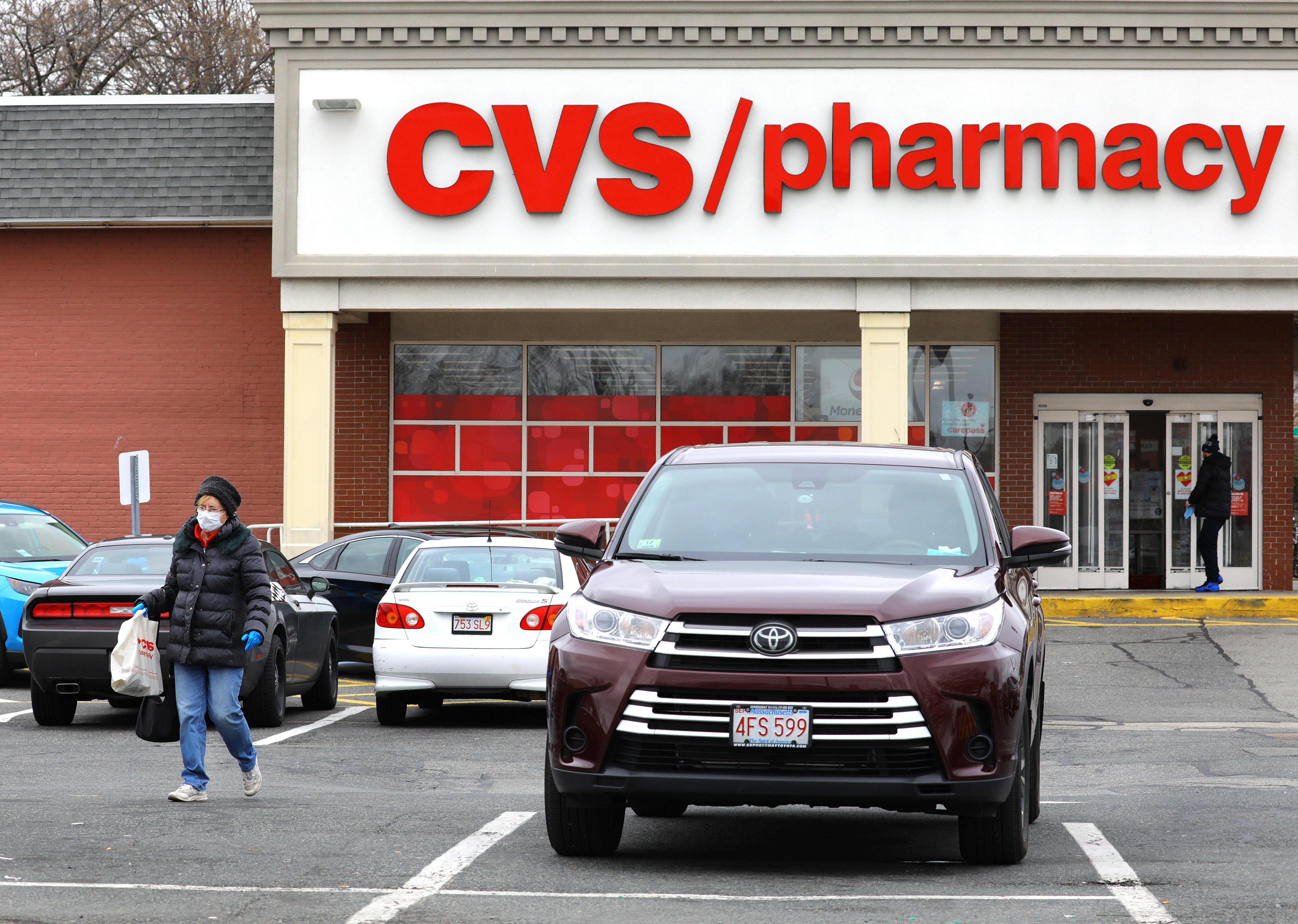Customers shop at the CVS Pharmacy, on Morrissey Boulevard, in Dorchester, on April 2, 2020. Some pharmacy workers worry about unsafe conditions at their stores.
Pat Greenhouse | Boston Globe | Getty Images
CVS Health on Wednesday reported that it beat expectations for earnings and revenue in the fiscal second quarter.
Shares of the company were up about 4% in premarket trading.
Here’s what the company reported for the quarter ended June 30 compared with what Wall Street was expecting, based on a survey of analysts by Refinitiv:
- Earnings per share: $2.64 adjusted, vs. $1.93 expected
- Revenue: $65.3 billion vs. $64.23 billion expected
The drugstore chain reported fiscal second-quarter net income of $2.98 billion, or $2.26 per share, up from $1.94 billion, or $1.49 per share, a year earlier.
Excluding items, CVS earned $2.64 per share, higher than the $1.93 cents per share expected by analysts surveyed by Refinitiv.
Revenue rose 3% to $65.3 billion, from $63.43 billion a year prior. It also outpaced the $64.23 billion expected by analysts.
CVS raised its outlook for the year. It expects earnings of $5.59 to $5.72 per share. After adjustments, it said it expects to earn between $7.14 and $7.27 per share, up from a prior forecast of $7.04 to $7.17 per share.
At the drugstore chain, front of the store revenue and prescription volume dropped during the quarter as many customers stayed at home during shelter-in-place orders.
Front store revenues dropped 4.6% in the three month period, compared with a year prior.Prescriptions filled dropped by 1.1% on a 30-day equivalent basis for the quarter, compared with a year ago, as fewer customers went to the doctor and thus got fewer new prescriptions.
However, the company — which is also in the health benefits business — also got a boost from people’s changing medical habits. Its operating income increased by more than 40% compared with the quarter a year prior, as people deferred elective procedures and discretionary use of their health-care benefits.
